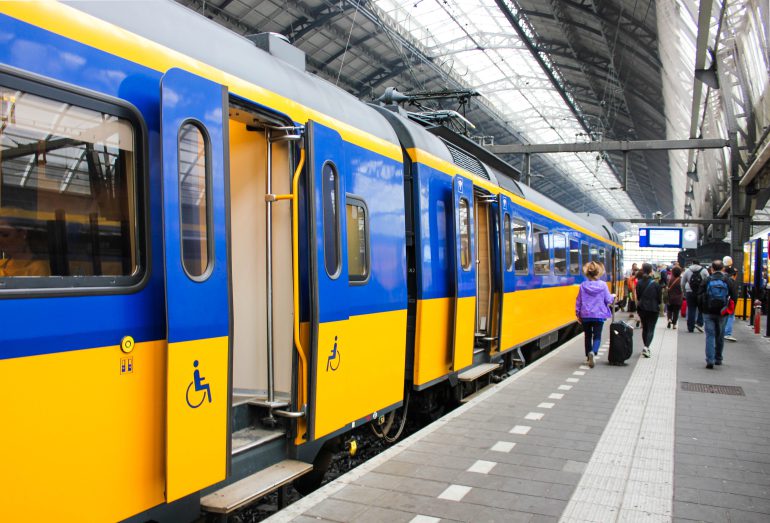Nederlandse Spoorwegen (NS) suffered losses of 109 million euros in the first half of 2024, and ticket prices are likely to increase substantially in 2025 as a result. NS also intends to cut obs and implement cost-saving measures, such as reducing office space, to compensate for the revenue loss.
The exact extent of the price hikes that will hit next year isn’t yet known, as it depends partly on the rate of inflation, but NS plans to increase prices by at least 8.7 percent in 2025. The expected ticket price increases may well end up topping 10 percent when all is said and done, suggests Freek Bos, director of travelers’ organization Rover, in an article published in newspaper Het Parool earlier this month.
NS attempted to raise ticket prices in 2024, but the move was blocked by the Dutch government. Although the 2024 rate hike wasn’t approved, the government did provide NS with a one-time subsidy of 120 million euros. The subsidy doesn’t extend to 2025, however, which means that the price increases avoided in 2024 will hit next year, along with increases required to keep up with inflation.
The company also plans to eliminate several jobs to help address the financial shortfall. Around 10 percent of the organization’s office jobs will be eliminated. Job losses are likely to impact around 500 office workers. Those who work in stations and on trains largely won’t be impacted by the cuts. NS currently employs around 19,000 people.
NS is considering implementing several additional cost-saving measures to improve its financial situation. The company plans to lower the number of IT systems it uses and reduce the office space it occupies to save money. The goal is to cut costs by around 200 million euros in total.
NS also plans to explore other ways to rein in costs, such as by delaying non-essential maintenance. In the past, NS generally renovated trains when they reached the midpoint of their thirty- to forty-year lifespans. The organization is now considering limiting upkeep to core maintenance and foregoing improvements such as outfitting older railway cars with things like USB ports.
Concerns have been raised about the uneven social impact of these sorts of public transportation-related price increases, as they tend to be felt particularly strongly by individuals and families with low incomes. ‘It’s not fair. Public transportation is a social product. Price increases mainly affect people with small budgets,’ states Bos. Those on the lower side of the income scale tend to be particularly dependent on public transportation and often feel the squeeze from price hikes more acutely than wealthier individuals, according to Nibud, an independent knowledge and advice body that concentrates on household finances.
This is the second year in a row that NS has lost money. In 2023, the company lost 87 million euros during the first six months of the year. The number of passenger has been impacted by long-term trends towards increased remote work, which has resulted in fewer passengers and trips, according to NS. The company has struggled to attract the same levels of passengers seen in the years before the Covid lockdowns, partially because of the corresponding shift towards working from home. Although the number of kilometers traveled by passengers increased in the first part of this year, the cost of keeping the trains up and running was higher than the revenue coming in from ticket sales, which contributed substantially to the organization’s financial shortfall.
In the face of the financial losses and the steps that will need to be taken to keep the company healthy, NS remains committed to keeping travelers satisfied and reducing the impact that cost-saving measures have on customers’ experiences. ‘Although it cannot be completely prevented, NS plans to do everything it can to ensure that the savings have as little impact on travelers as possible,’ states NS.
Written by Lorre Luther
